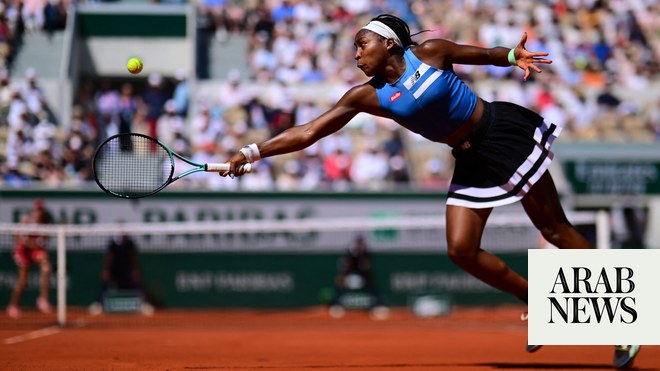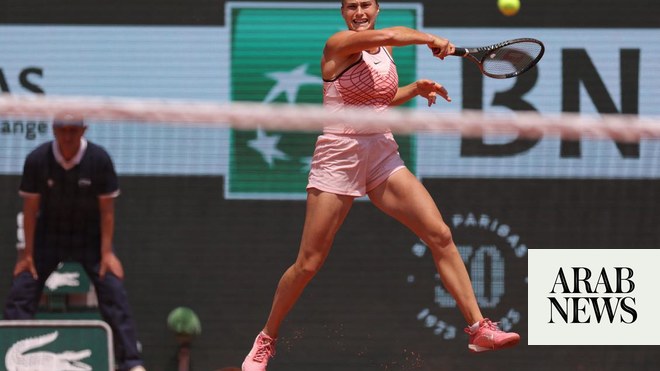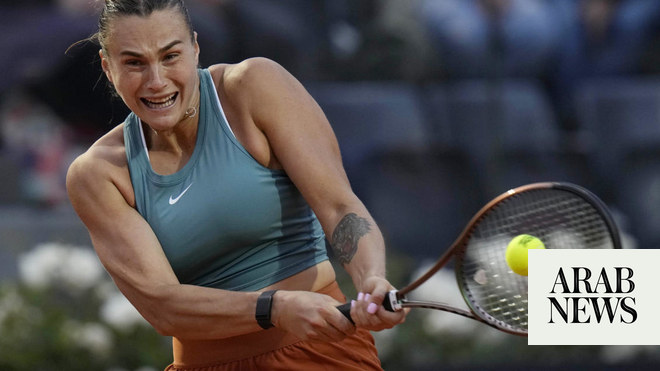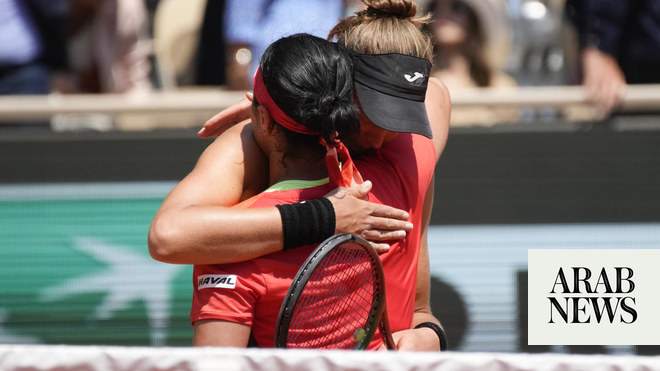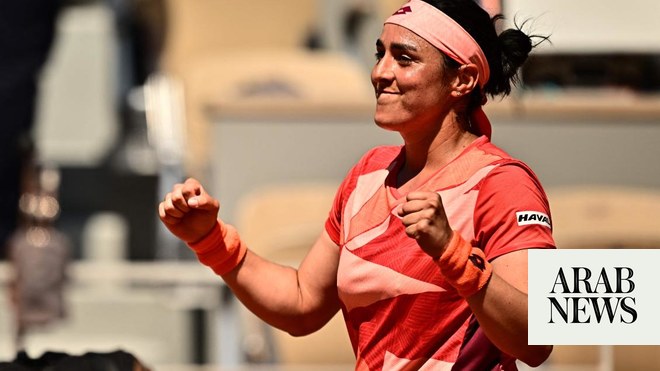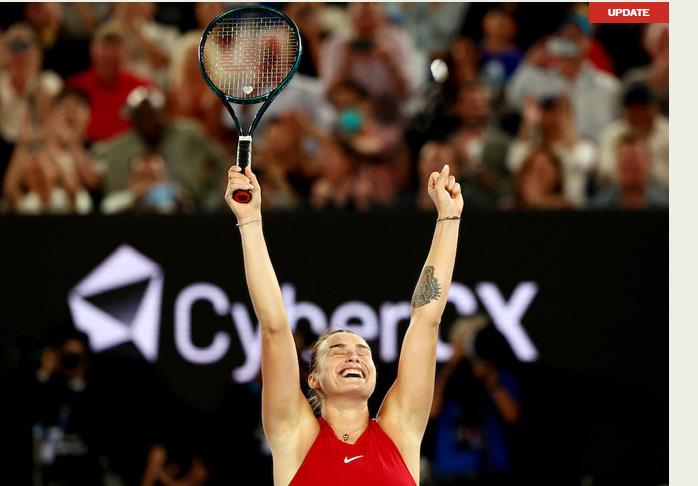
“I tried to play brave,” the 38th-ranked Andreeva said
She is also the youngest player to eliminate someone ranked No. 1 or 2 at Roland Garros
PARIS: Mirra Andreeva, an unseeded 17-year-old from Russia, surprised No. 2 seed Aryna Sabalenka 6-7 (5), 6-4, 6-4 at the French Open on Wednesday to become the youngest Grand Slam semifinalist since Martina Hingis at age 16 in 1997.
“I tried to play brave,” the 38th-ranked Andreeva said. “And I managed to win.”
She is also the youngest player to eliminate someone ranked No. 1 or 2 at Roland Garros since Monica Seles — like Hingis, now a member of the International Tennis Hall of Fame — was 16 when she beat Steffi Graf in the 1990 final.
Andreeva has yet to win a tour-level title of any sort and is competing in only her fifth Slam tournament.
Sabalenka, meanwhile, is a two-time champion at the Australian Open, including in January, and had won the first 23 Grand Slam sets she played in 2024 until dropping two in a row against Andreeva. Sabalenka was visited multiple times by a trainer and doctor on Wednesday and often clutched at her midsection, although it was not clear what was wrong.
When she broke to end the match with a beautiful lob that Sabalenka didn’t even move to try to get to, Andreeva broke into a wild smile, then covered her face with both hands.
“Honestly, I was really nervous before the match. I knew that she would have an advantage, especially with the crowd,” said Andreeva, whose older sister, 19-year-old Erika, lost to Sabalenka in the first round last week. “But I actually was a little surprised, because you guys also cheered for me.”
On Thursday, Andreeva will face another newcomer to this stage: 12th-seeded Jasmine Paolini, a 28-year-old from Italy, who reached her first major semifinal with a 6-2, 4-6, 6-4 victory over No. 4 seed Elena Rybakina, the Wimbledon champion two years ago.
“It’s an unbelievable feeling,” said Paolini, who has won two titles in her career, neither on clay courts.
The other matchup Thursday involves two players who have far more experience and far greater accomplishments: No. 1 Iga Swiatek against No. 3 Coco Gauff. Swiatek is seeking her fifth Grand Slam title and fourth in Paris; Gauff won the US Open last September and was the runner-up to Swiatek at Roland Garros in 2022. They both won quarterfinals on Tuesday.
Whoever wins that semifinal is likely to be a big favorite in the final against Andreeva or Paolini.
Had Sabalenka and Rybakina won Wednesday, this would have been only the second time in the professional era, which began in 1968, that the women seeded 1-4 all advanced to the semifinals. The other was way back in 1992, when Seles, Graf, Gabriela Sabatini and Arantxa Sanchez Vicario did it.
But Paolini and Andreeva put a stop to that.
Andreeva already had shown plenty of promise, making her way to the fourth round at Wimbledon last year and the Australian Open this year. She is precocious on the court and off, and is still refining her game, currently with the help of coach Conchita Martinez, the 1994 Wimbledon champion.
“I kind of see the game. I just play wherever I want. I don’t even have a plan,” Andreeva said with a chuckle. “So when I see an open space on the court, I try to play there. Or if I think that maybe she will run there, I try to play behind her back or something like that. Me and my coach, we had a plan today, but again I didn’t remember anything during the match. I just try to feel as I play and that’s it.”
Paolini exited in the first or second round in each of her first 16 Grand Slam appearances before making it to the fourth round of the Australian Open.
With Jannik Sinner into the men’s semifinals, it is the first time an Italian woman and Italian man both have appeared in the final four at the same Grand Slam tournament in the same year. It’s quite a moment for their country in tennis: On Monday, Sinner will become the first man to be No. 1 in the ATP rankings.
Paolini finished with 22 unforced errors, fewer than half of Rybakina’s 48. And Paolini accumulated seven breaks against the big-serving Rybakina, who hit 10 aces.
Paolini dominated the opening set, making just one unforced error while Rybakina made 16. In the second set, after getting within a point of a 5-3 lead, Paolini lost a bit of nerve, allowing Rybakina to force a third.
The final set went back-and-forth, until Paolini broke one last time for a 5-4 edge, then served out the victory and let out a yell when Rybakina sent a backhand long.
“I (got) a little bit too emotional in the second set,” Paolini said. “But then I said to myself: ‘OK. It’s good. She’s a great champion so it can happen. Just fight. Try to keep it there. Try to hit every ball.’ And, yeah, it worked.”




